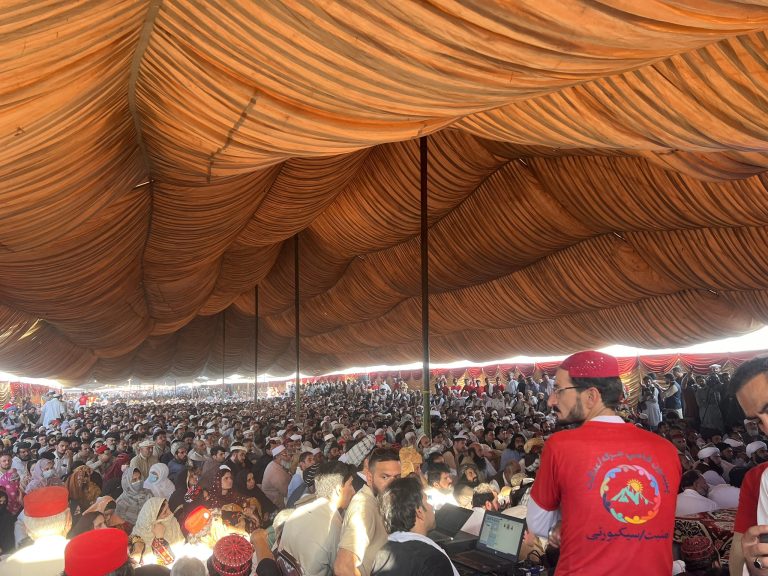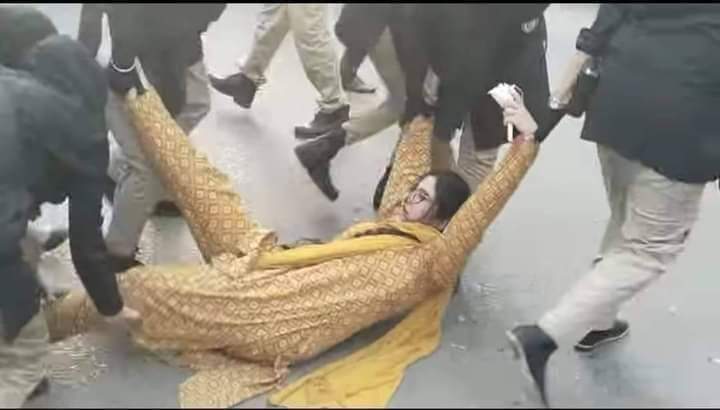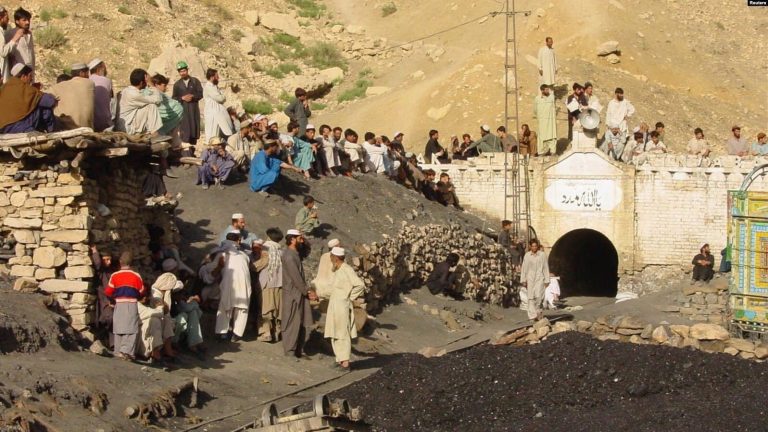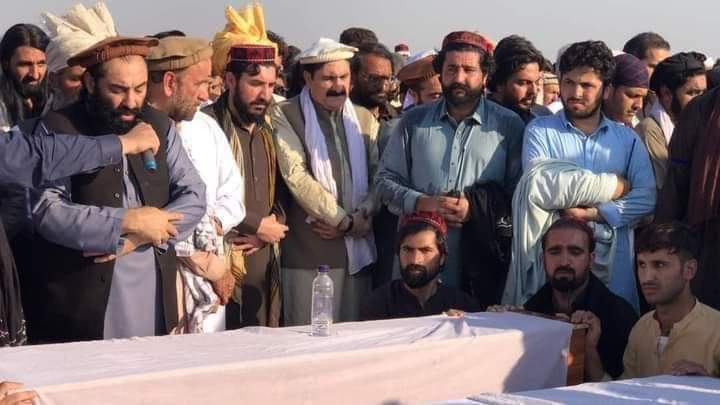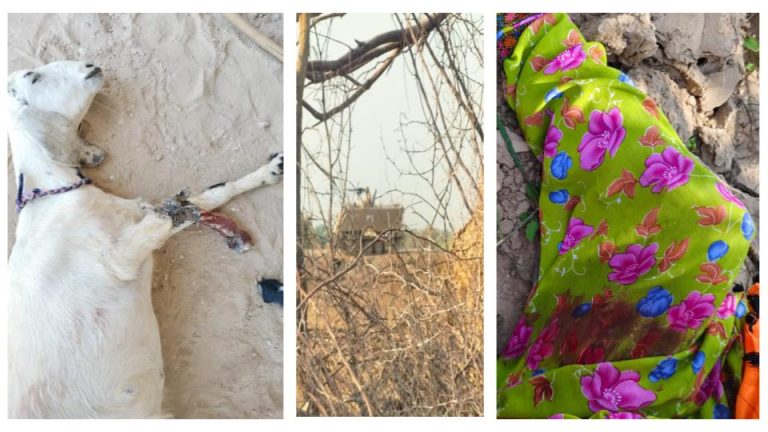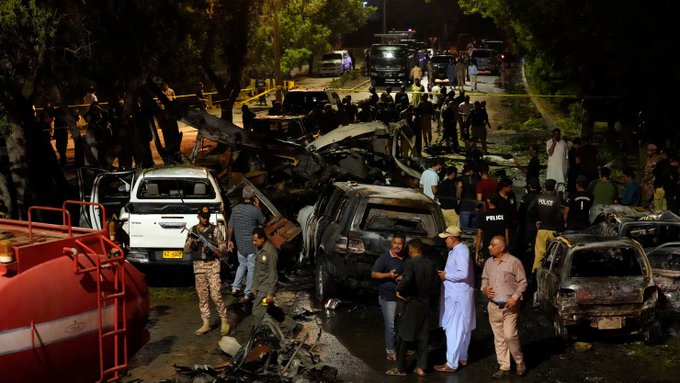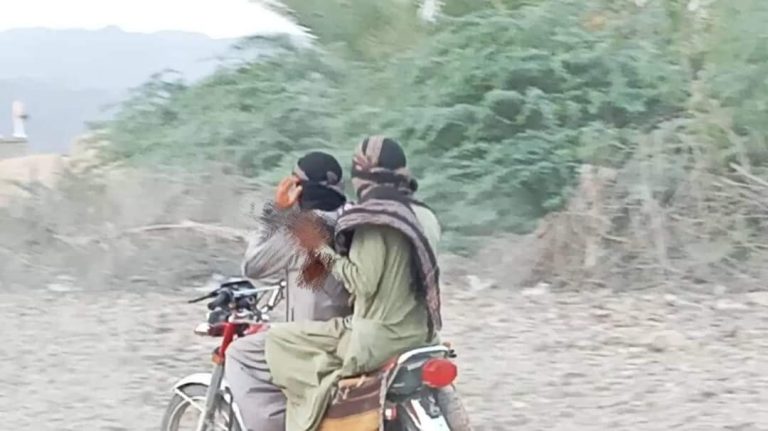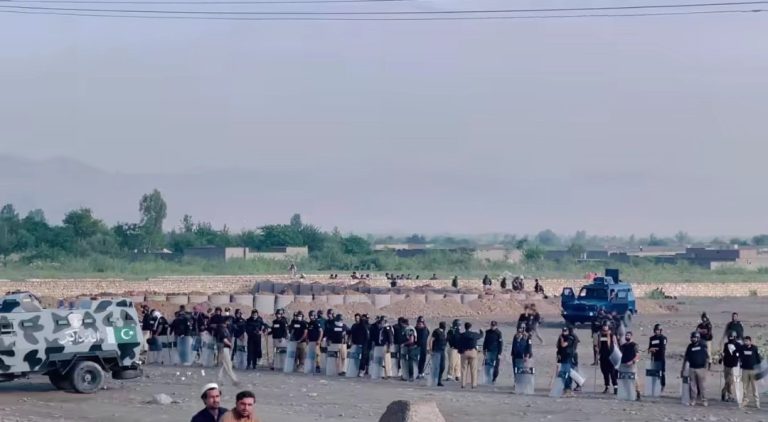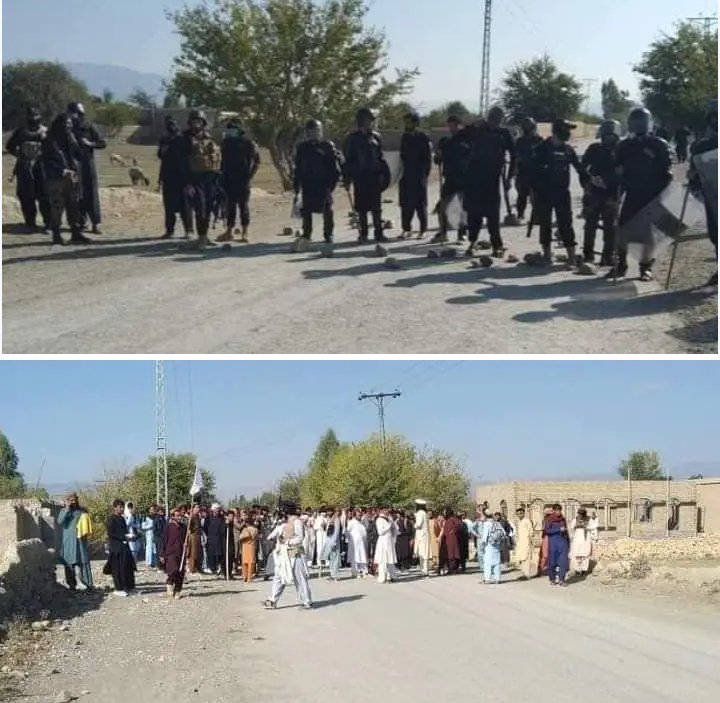The three-day Pashtun Qaumi Jirga, chaired by Pashtun Tahafuz Movement (PTM) leader Manzoor Ahmad Pashteen, concluded with a powerful 20-point resolution, exposing the Punjabi Pak Army’s oppressive control on Pashtun land and people. Thousands of Pashtun leaders, tribal elders, and activists attended the Jirga, where demands were made for an end to military interference, exploitation of natural resources, and suppression of Pashtun voices.
Pashteen launched a scathing critique of Pakistan’s colonial-era legal system and demanded the immediate withdrawal of the Pakistan Army from Pashtun regions. Pashteen said that the Punjabi Pak Army elites are ruling with the same oppressive laws used by the British to suppress the people of these lands, leaving no space for reform or justice.
“The current laws are those imposed by the British rulers, designed to control an occupied population. Today, those same laws remain intact, serving as tools of repression by the military establishment,” Pashteen told the gathering of tribal elders, political leaders, and activists. He added, “Even former Prime Ministers admitted that the laws passed by Parliament were drafted not in Islamabad but in Rawalpindi’s General Headquarters (GHQ).”
Jirga Demands the Removal of Pak Occupying Forces
The resolution boldly called for the eviction of all occupying forces—whether in uniform or not—within 60 days, reflecting growing frustration with the military’s control over the region. The participants vowed to reclaim occupied lands, recover missing persons, and secure justice for martyrs through legal channels.
Pashteen called for the complete removal of the Pakistan Army and Taliban factions from Pashtun regions, holding both responsible for the chaos and insecurity plaguing the area. “It is time for this Jirga to decide: both the military and Taliban—whether labeled as ‘good’ or ‘bad’—must leave, for they are the root cause of unrest,” he said, directly challenging the establishment’s policy of using proxy militants to maintain control over strategic areas.
This is not the first time the PTM has exposed the toxic nexus between the military and extremist groups. Activists have raised voice against the Pakistan Army for sheltering militants to further its strategic interests while branding dissenters as terrorists.
Declare the Pak Army and Intelligence Agencies as Terrorist Organizations
In a daring move, Pashteen urged the Jirga to officially declare the Pakistan Army, ISI, Military Intelligence (MI), and both factions of the Taliban as terrorist organizations. “These forces do not serve the people—they terrorize them. The Pashtun community must collectively recognize them for what they are: enemies of peace,” Pashteen said.
The PTM has long protested against the Punjabi military establishment for orchestrating violence to control the region, using enforced disappearances, extrajudicial killings, and intimidation tactics to silence dissent.
Economic Boycott of Exploitative Practices
In a show of defiance, the Jirga announced that no resident would pay more than five rupees per unit for electricity. Participants warned that if power was cut or load shedding continued, they would dismantle the power transmission infrastructure—a direct strike against the occupied-state’s failure to provide basic services while squeezing citizens for exorbitant bills.
Rejection of the Durand Line as a Border
The resolution demands free movement across the Durand Line without passports or visas, challenging Pakistan’s use of borders as a tool to isolate and control Pashtuns. The call for unrestricted cross-border movement exposes the colonial nature of the border, imposed by the British and sustained by the Paki establishment to fragment Pashtun unity.
Pashteen also addressed the contentious issue of the Durand Line, which the Paki establishment enforces as a border between Pakistan and Afghanistan. He rejected its legitimacy, saying, “The Durand Line has no legal or official status for the Pashtun people. It was drawn to divide us, and we must resist it. Trade and movement should be restored as they once were, with no artificial boundaries separating us.”
This statement aligns with the long-standing grievances of Pashtuns on both sides of the border, as the Durand Line is a colonial imposition that disrupts cultural and familial ties.
Land Disputes
A special Jirga committee will be formed to resolve land disputes in the Pashtun region through traditional dialogue.
Support for Internally Displaced Persons (IDPs)
All IDPs will decide the timing of their return, and the Jirga, along with the Pashtun community, will lead and support them.
End to Discrimination Against Pashtun Students
Discriminatory treatment of Pashtun students in Punjab, Sindh, and other federal areas must stop. If it continues, the Jirga and Pashtun leaders will travel to these areas to offer support.
Denouncing Military Extortion and Interference
The Jirga took a firm stance against extortion, declaring that no Pashtun would pay bribes or extortion money—whether demanded by uniformed officers or their civilian proxies. It promised collective action if any community member faced such harassment, signaling growing defiance against the military’s informal control networks.
Demand for a New Social Contract
In a direct challenge to the Paki establishment, the Jirga declared the existing constitution a failure and demanded a new social contract that reflects the will of the Pashtun people. This call questions the legitimacy of Pakistan’s current political structure, which has long marginalized ethnic minorities and handed disproportionate power to the Punjabi military elite.
Release of Political Prisoners and Repeal of Black Laws
The Jirga condemned the use of military courts and internment centers, demanding their immediate abolition. It also called for the repeal of the draconian Action in Aid of Civil Power law, which grants sweeping powers to the military in tribal areas. The participants demanded the immediate release of all political prisoners, including those detained during the Jirga sessions.
End to Colonial Exploitation of Resources
The resolution demanded that Pashtun lands be granted control over natural gas resources, as per Article 158 of the constitution, and called for the enforcement of the 1991 Indus Water Treaty to ensure equitable access to water. These demands highlight how the military and state have exploited natural resources while denying benefits to local communities.
Challenging Social Injustice
The Jirga took steps toward dismantling outdated practices, announcing the abolition of “Swara,” the exchange of women to settle disputes. It also demanded that Afghan girls be allowed access to education, aligning with broader regional struggles for women’s rights.
Warning of Nationwide Protests
The Jirga declared that mass protests would be held next Sunday across district capitals to highlight the oppression of Pashtuns and pressure the state to meet their demands. Participants warned that any attempt by the occupied-Punjabi-authorities to obstruct or target those involved in the Jirga would provoke a strong response from the Pashtun community.
Critique of Pakistan’s Military and Establishment
The Jirga’s resolutions are a direct indictment of the Pakistan Army’s control over civilian matters and the broader establishment’s exploitation of marginalized communities. The demands for self-determination, resource control, and justice for victims of occupied-state violence reflect the growing disillusionment with a occupied-state that prioritizes Punjabi Pak Army dominance over the well-being of its citizens.
The message from the Jirga is: Pashtuns will no longer accept the status quo dictated by the Punjabi military.

